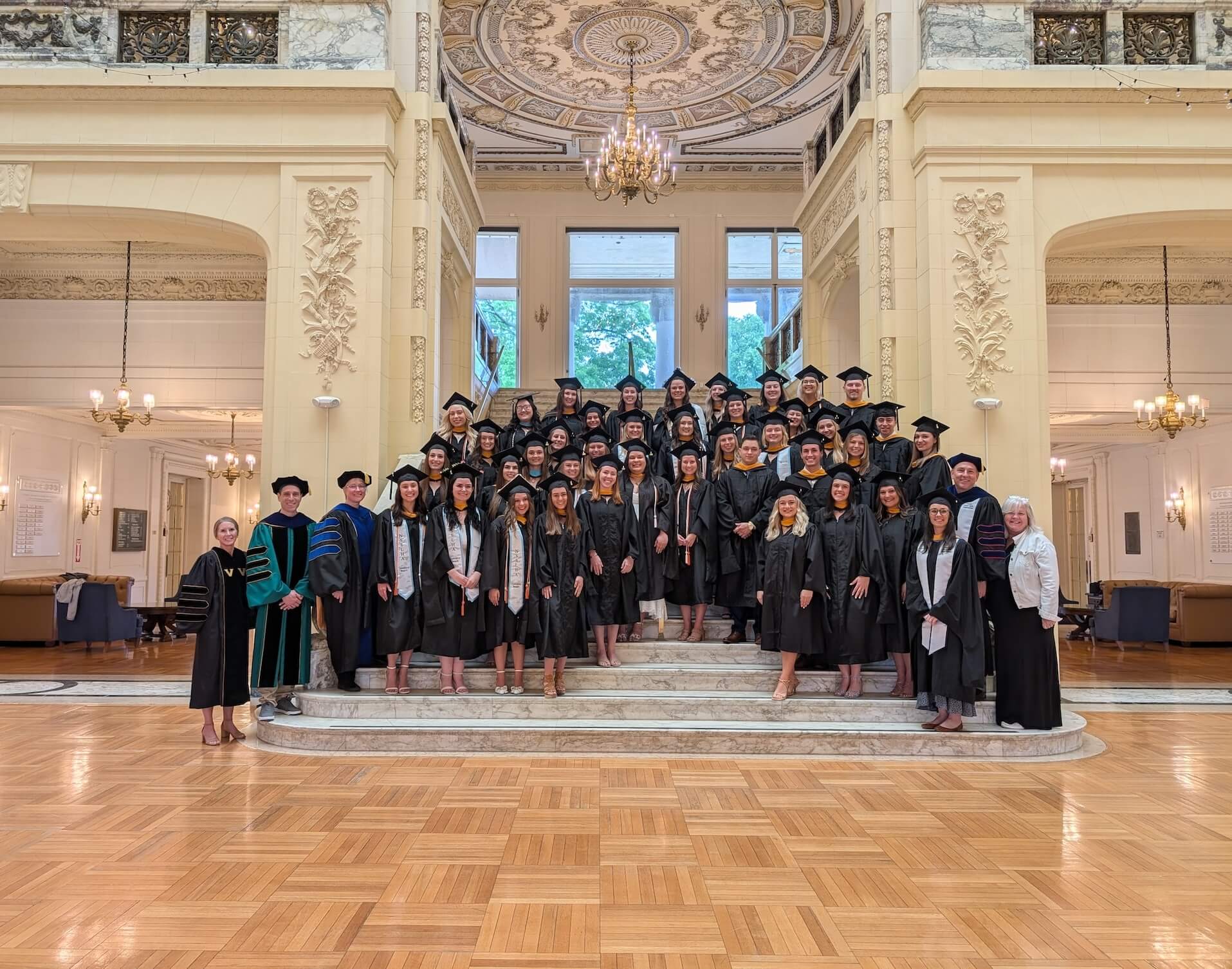Jump To
Program Details
About
- Master’s of Science in Education (MSEd) in Speech-Language Pathology
- In-person, full-time
- 60 Credits
- Summer-start, 6-semester program completed over a two-year period with continuous, full-time enrollment
- Bridge Program available for those without prerequisites
Application Deadlines
December 1 for Monmouth Bachelor’s + Master’s candidates
February 1 for traditional and bridge program candidates
Get Started
SLP Graduate Program Overview
Speech-language pathologists—sometimes called speech therapists—help patients of all ages with communication and swallowing disorders.
As an SLP student at Monmouth University, you’ll study with expert faculty members and put learning into action through 400+ hours of practical experience, both at our on-campus community clinic and at partner facilities. Our lockstep, cohort model means you’ll learn alongside the same small group of peers throughout the comprehensive program.
This accredited program prepares you for speech-language pathologist licensure in multiple states, as well as for the state endorsement as a Speech and Language Specialist (SLS). It also meets the educational requirements for the Certificate of Clinical Competence in Speech-Language Pathology (CCC-SLP) from the American Speech-Language-Hearing Association.
CCC-SLP: Graduates of the program are prepared for entry-level practice. After completing the clinical fellowship experience (CF) post-graduation, they are eligible for the Certificate of Clinical Competence in Speech-Language Pathology from the American Speech-Language-Hearing Association.
State Licensure: Program graduates will have fulfilled the academic and clinical requirements for initial/partial licensure in Speech-Language Pathology in New Jersey, New York, and Pennsylvania. Full state SLP licensure requires additional practice and testing post-graduation from the program.
Teacher/School-based Credentialing: The academic and clinical requirements of the program meet the educational criteria for the Speech-Language Specialist (SLS) teaching credential in New Jersey, the Initial Certification as a Teacher of Students with Speech and Language Disabilities (TSSLD) in New York, and the Speech and Language Impaired PK-12 Program Framework Guidelines in Pennsylvania.
Those seeking licensure/credentialing in other states should consult their respective licensing agencies for additional information.
Monmouth’s summer-start, 6-semester program is completed over a two-year period with continuous full-time enrollment. On-time completion requires Summer I, Fall I, Spring I, Summer II, Fall II, and Spring II. Courses are taught at the Monmouth University Graduate Center, located two miles from the main campus.
Career Outcomes: SLP Jobs
According to the U.S. Bureau of Labor Statistics, the demand for speech-language pathologists is expected to grow by 18% through 2033, which is much faster than the average for all occupations. U.S. News & World Report ranked speech-language pathologist No. 9 on its 2025 Top 100 Jobs in America list. In 2025, the national median annual speech-language pathologist salary was $89,290.
Speech-Language Pathologists work in a variety of settings such as:
- Hospitals and rehabilitation centers
- Public and private schools
- Preschools and early-intervention programs
- Home health agencies
- Long-term care and assisted living facilities
Speech-Language Pathology Degree Requirements
Our innovative, hands-on curriculum encompasses coursework in speech, language, voice, swallowing, and cognitive disorders across the lifespan.
SLP Curriculum & Coursework
The speech-language pathology curriculum combines theory and practice through 60 required credits of academic and clinical coursework. Refer to the graduate catalog for full SLP speech-language pathology degree requirements and course descriptions
SLP Sample Sequence Chart
Summer I
- SLP 604 Clinical Methods in SLP
- SLP 680 Research Methods
Fall I
- SLP 610 Neurological Language Disorders and Aphasia
- SLP 645 Speech Sound Disorders
- SLP 655 Disorders of Voice and Resonance SLP 660 Motor Speech Disorders
- SLP 681 Clinical Practicum I
Spring I
- SLP 614 Assessment and Treatment of Dysphagia
- SLP 630 Pediatric Language Disorders
- SLP 650 Fluency Disorders
- SLP 682 Clinical Practicum II
Summer II
- SLP 625 Assessment Procedures in SLP
- SLP 664 Audiology and Aural Rehabilitation
- SLP 679 Diagnostic Practicum in SLP
Fall II
- SLP 665 Augmentative and Alternative Communication
- SLP 666 Literacy and SLP in the Schools
- SLP 683 External Clinical Practicum I
Spring II
- SLP 605 Geriatric Communication Disorders
- SLP 678 Pediatric Feeding and Swallowing Disorders
- SLP 684 External Clinical Practicum II
- SLP CPE Comprehensive Portfolio Evaluation
Clinical Practicum
You’ll gain more than 400 hours of clinical experience through four practicums: two at our on-campus community clinic and the other two at an external facility. During both experiences, you’ll work with clients across the lifespan with various disorders.
Our externship coordinator can help you make connections with local sites that match your interests and career goals.
Admissions Requirements
Here’s an overview of the admissions requirements and application process for our SLP graduate program.
Admissions Criteria & Application Requirements
To be considered for admission:
- Application to the M.S.Ed. in Speech-Language Pathology program is completed via use of CSDCAS.
- An expected earned baccalaureate degree by June 15 of the application year with a minimum cumulative GPA of 3.0 on a 4.0 scale from all courses at all institutions; A minimum cumulative GPA of 3.0 in all Speech-Language Pathology prerequisite courses (does not include non-SLP prerequisites, e.g., statistics); and competitive applicants have GPA’s of 3.3 or better. The GPA requirement must be maintained through all coursework completed after the time of application to the program as well.
- Completion of all prerequisite courses with a “C” or better.
Your application must also include:
- Two letters of recommendation from those who know the student and can address the student’s ability to complete graduate studies. It is highly recommended that at least one letter is from a current or previous instructor.
- Essay (500 words or more) related to the department’s mission on your CSDCAS application, and an oral audio recording (1-2 minutes) on empathy and clinical practice in speech-language pathology on your Monmouth University Applicant Portal (see next bullet).
- Once your application has been verified by CSDCAS and imported by Monmouth University, you will receive an email with instructions on how to access your Applicant Portal. Through this portal, you will be able to sign and upload the required Core Functions Acknowledgement Form, upload your Oral Audio Recording, and submit your $60.00 Monmouth University application fee.
- A professional resume is required.
The Graduate Record Exam (GRE) is not required for application to the SLP program.
Prerequisite Courses
SLP candidates must complete 18 credits of prerequisite coursework:
- Introduction to Communication Sciences and Disorders
- Introduction to Language Development
- Introduction to Phonetics
- Anatomy and Physiology of Speech and Hearing
- Speech and Hearing Science
- Introduction to Audiology
A grade of “C” or better is required.
American Speech-Language-Hearing Association Coursework Requirements
The applicant must also demonstrate completion of stand-alone courses in the areas of statistics, biology, physics OR chemistry, and social/behavioral sciences in order to meet the American Speech-Language-Hearing Association’s Certification Standard IV-A. The student must earn a “C” or better in this prerequisite coursework. For more information about this coursework visit the ASHA webpage.
Students who do not have their prerequisite courses completed may apply for the SLP Bridge Pathway to the MSEd Program. Qualified students who are admitted to the bridge program will enroll at Monmouth University as a non-matriculated undergraduate student while taking required preparatory coursework, and matriculate into the MSEd in SLP program in the summer following completion of the preparatory coursework.
SLP Bridge Pathway to MSEd Program
Full admission to the MSEd in Speech-Language Pathology degree program is based on the completion of the following 18 credits of required preparatory coursework with an average GPA of 3.0 across all 18 credits. While completing these 18 credits, the student has undergraduate, non-matriculated status. The courses must be completed at Monmouth University within the first academic year after conditional admission to the program (i.e., bridge courses), unless completed prior to application to this admission option.
- SLP 201: Introduction to Communication Disorders (3 credits)
- SLP 202: Introduction to Language Development (3 credits)
- SLP 301: Introduction to Phonetics (3 credits)
- SLP 302: Anatomy and Physiology of Speech and Hearing (3 credits)
- SLP 401: Speech and Hearing Science (3 credits)
- SLP 402: Introduction to Audiology (3 credits)
Students must also demonstrate completion of stand-alone courses in areas of statistics, biology (related to vertebrates), physics OR chemistry, and social/behavioral science (e.g., anthropology, sociology, psychology) within the first academic year after conditional admission to be fully admitted to the MSEd in Speech-Language Pathology program in order to meet the American Speech-Language-Hearing Association’s Certification Standard IV-A. The student must earn a “C” or better in this prerequisite coursework. For more information about this coursework visit the ASHA webpage. This requirement may be modified by the MSEd in Speech-Language Pathology Program Director to allow additional time to complete these courses, but no later than the semester of graduation from the program.
Accreditation
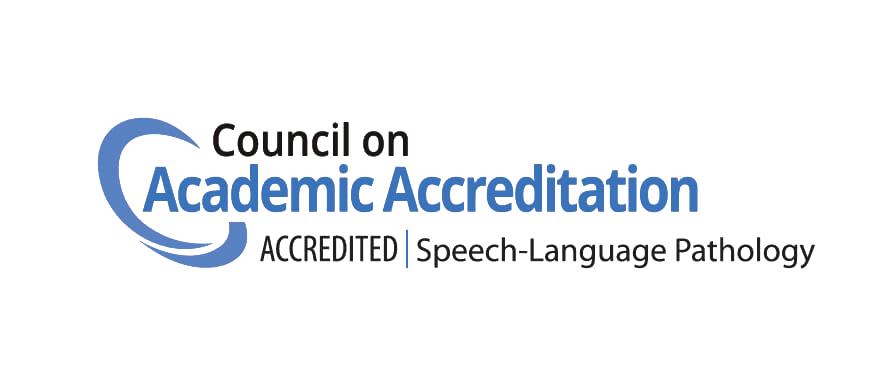
The Master of Science in Education (M.S.Ed.) education program in speech-language pathology (residential) at Monmouth University is accredited by the Council on Academic Accreditation in Audiology and Speech-Language Pathology of the American Speech-Language-Hearing Association, 2200 Research Boulevard, #310, Rockville, MD 20850, 800-498-2071 or 301-296-5700.
Accreditation signifies to students, the general public, and all interested parties that the program of study has met the rigorous standards designed to ensure that programs strive for excellence in educating students. The American Speech-Language-Hearing Association (ASHA)’s website provides greater detail on what accreditation requires and means to students and the public. Concerns regarding Monmouth’s accreditation may be referred to the Council on Academic Accreditation in Audiology and Speech-Language Pathology (CAA). If you have questions, please feel free to contact us at SLPinfo@monmouth.edu.
Why Monmouth for Your Speech-Language Pathology Master’s?
On-site Community Clinic
Gain hands-on experience as you work with clients of all ages in our busy on-campus community clinic.
Expert, Caring Faculty
Work closely with faculty members who are dedicated to providing quality, compassionate care.
Externship Opportunities
Build more clinical skills at one of our partner locations, including schools, hospitals, and rehab facilities.

Tuition & Financial Aid
Learn more about tuition and financial aid options for graduate students.
Center for Speech and Language Disorders
Monmouth University provides free treatment and rehabilitation services to local clients of all ages. This real-world learning lab also offers SLP graduate students a remarkable clinical experience.
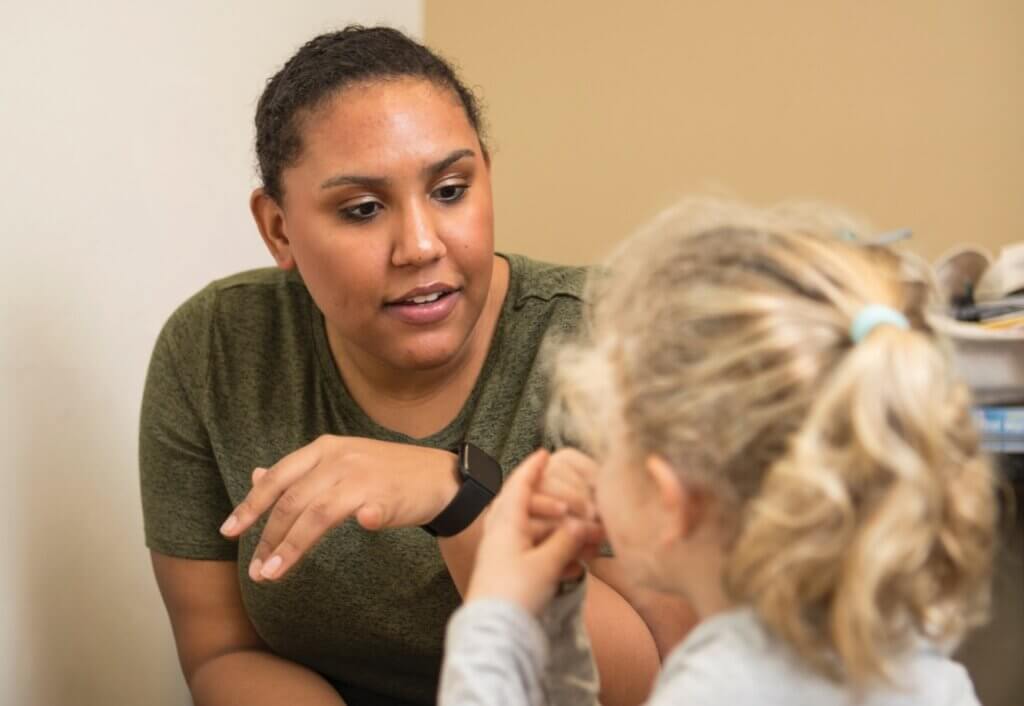
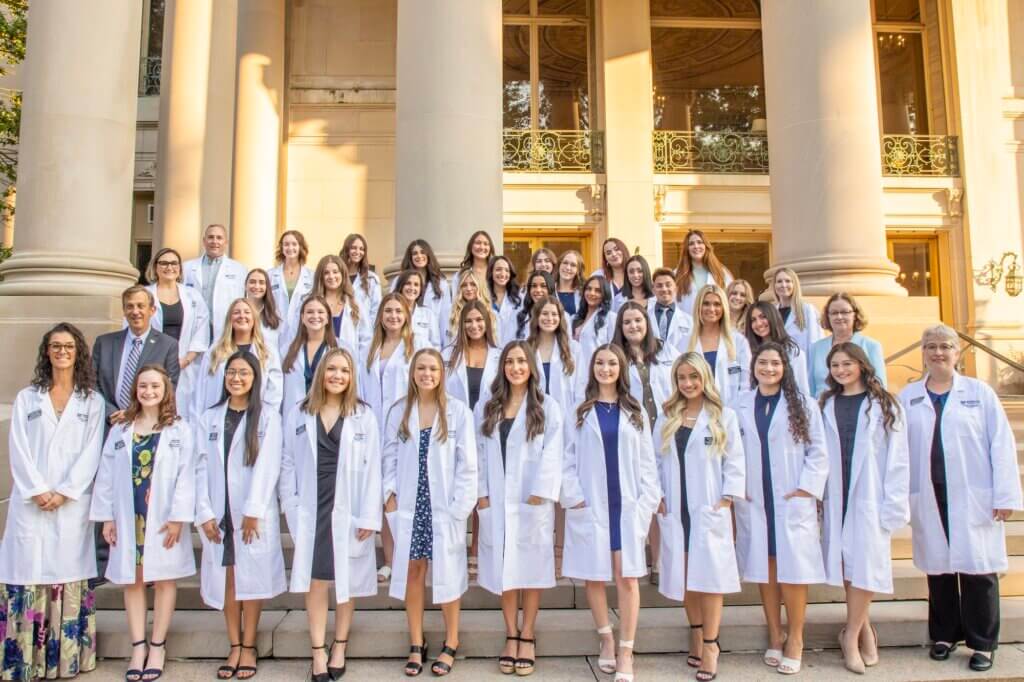
Student Involvement Opportunities
Monmouth SLP students can stay connected on campus and within the profession through student organizations and the SLP department Instagram.
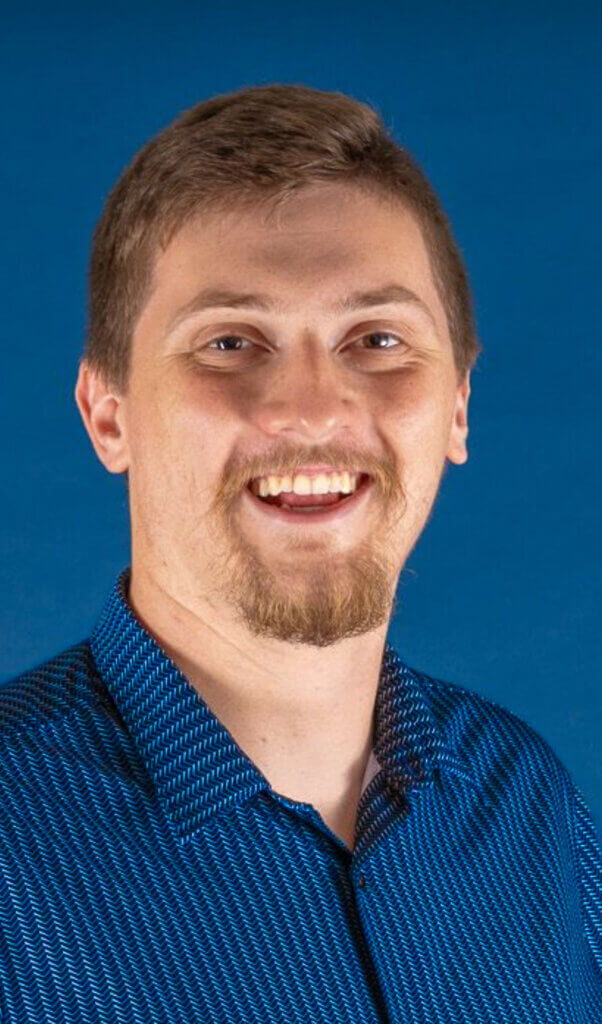
Testimonial
“The best part about my experience at Monmouth University’s MSEd in Speech-Language Pathology program was working with clients at the in-house clinic, watching them grow, and helping them achieve their goals. It taught me how to apply my SLP knowledge into practice and build my confidence as I transitioned into becoming a clinician.”
Beau Braun
Speech-Language Pathology Faculty & Staff
Our faculty and staff includes practicing speech-language pathologists and widely published scholars of SLP. Faculty are actively engaging in research on voice disorders, swallowing disorders, child speech and language disorders, and digital technology and speech therapy.
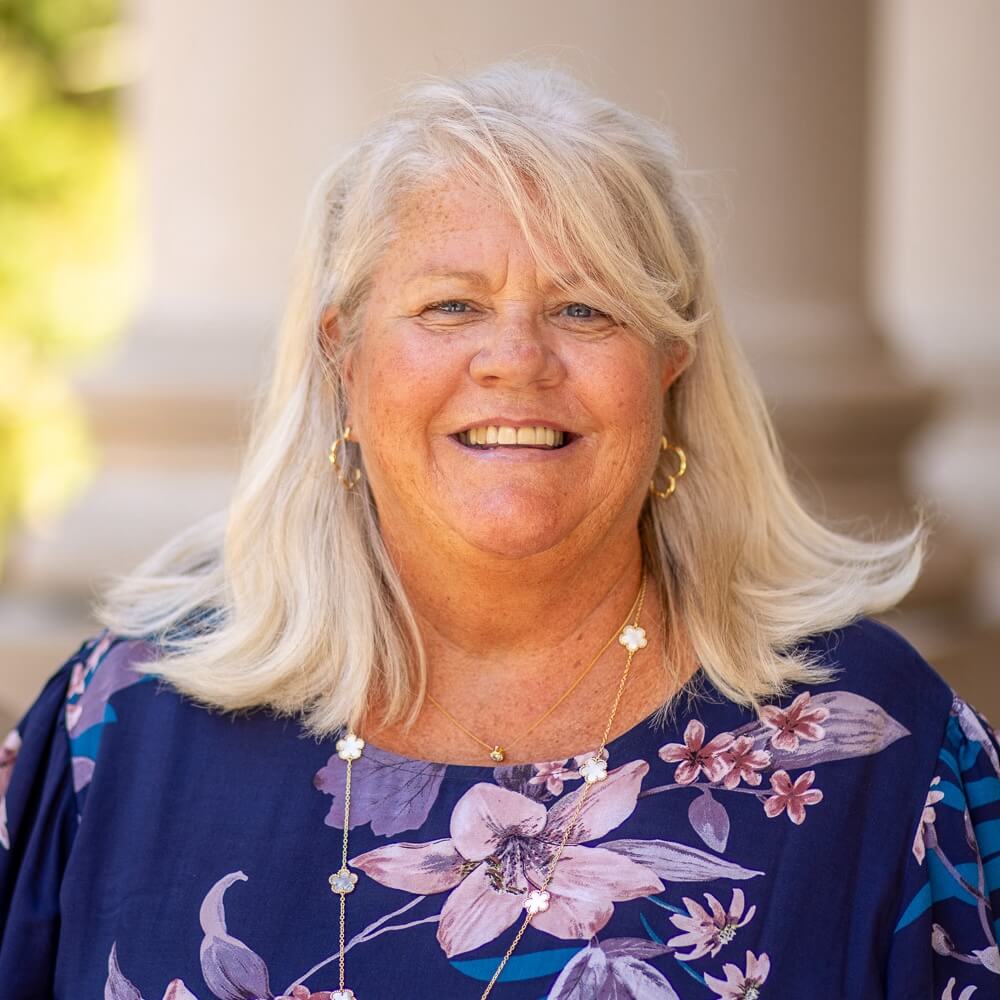
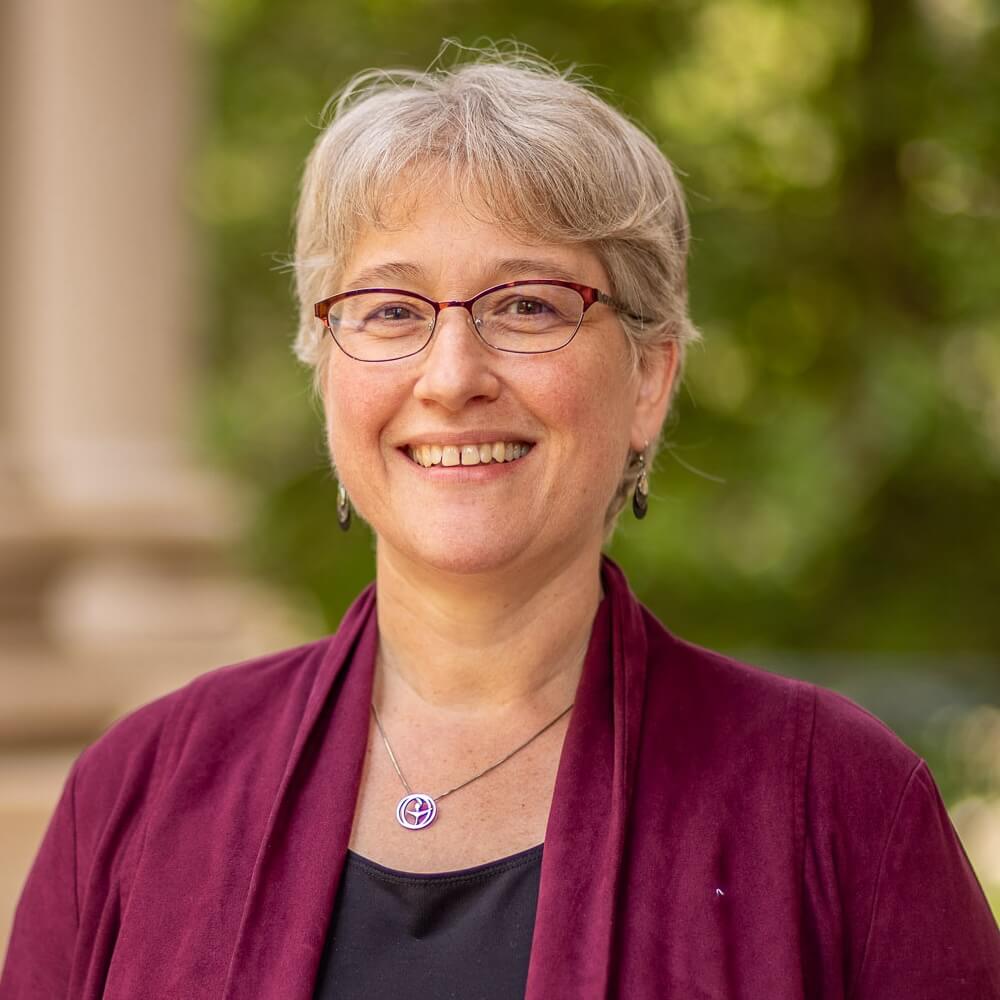
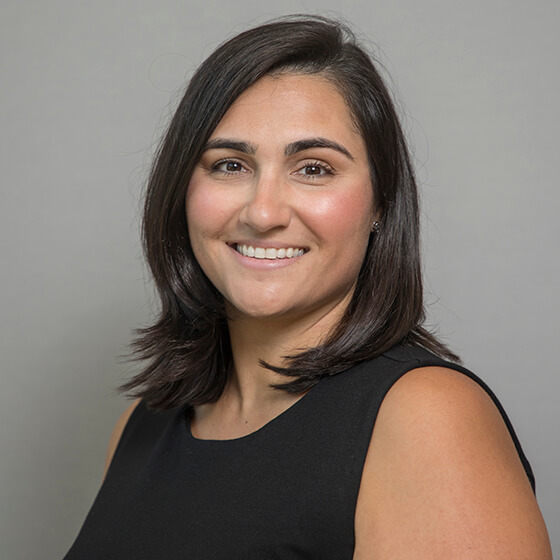
Brittany L. Khan, M.S., CCC-SLP
Director, Center for Speech and Language Disorders;
Coordinator for the Program for Research & Support for Rett Syndrome ;
Adjunct Professor
Email: bbonner@monmouth.edu
Phone: 732-263-5974
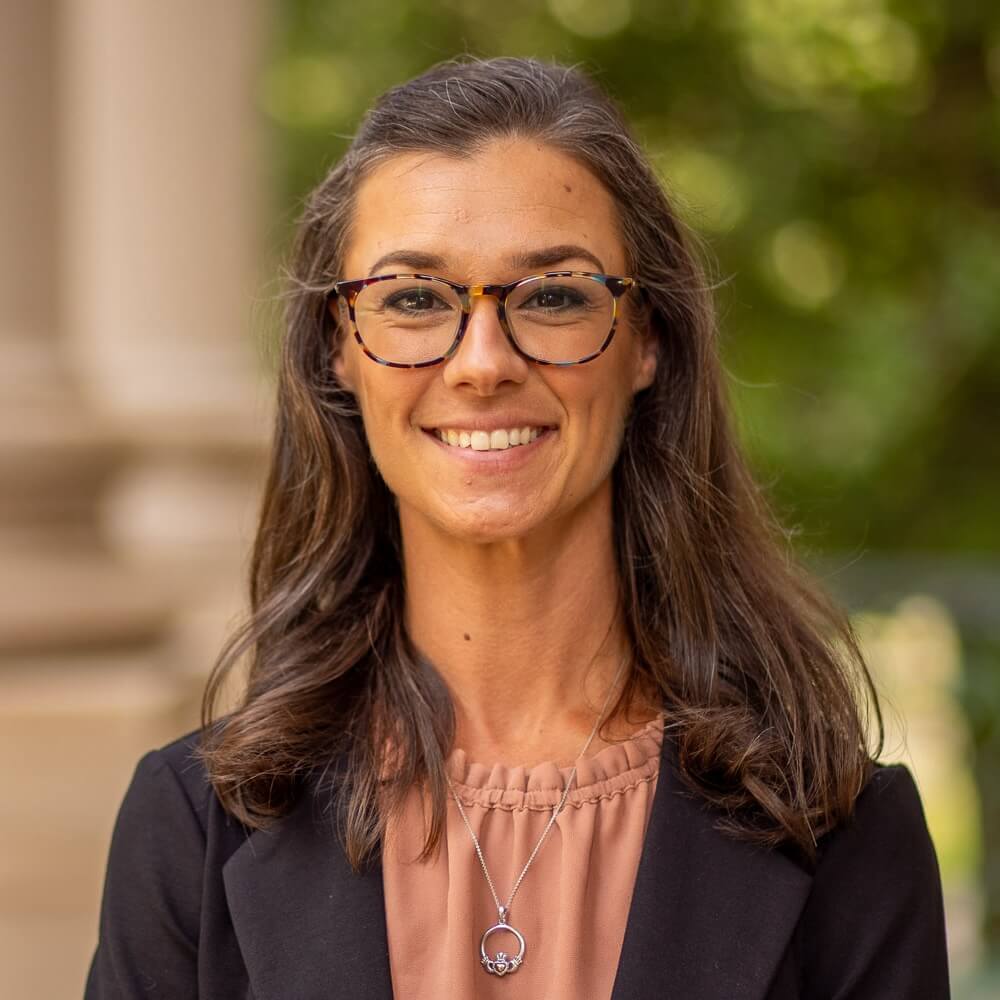
Ashley McCarthy, M.S., CCC-SLP
Specialist Professor;
Externship Coordinator
Email: amccarth@monmouth.edu
Phone: 732-263-5763

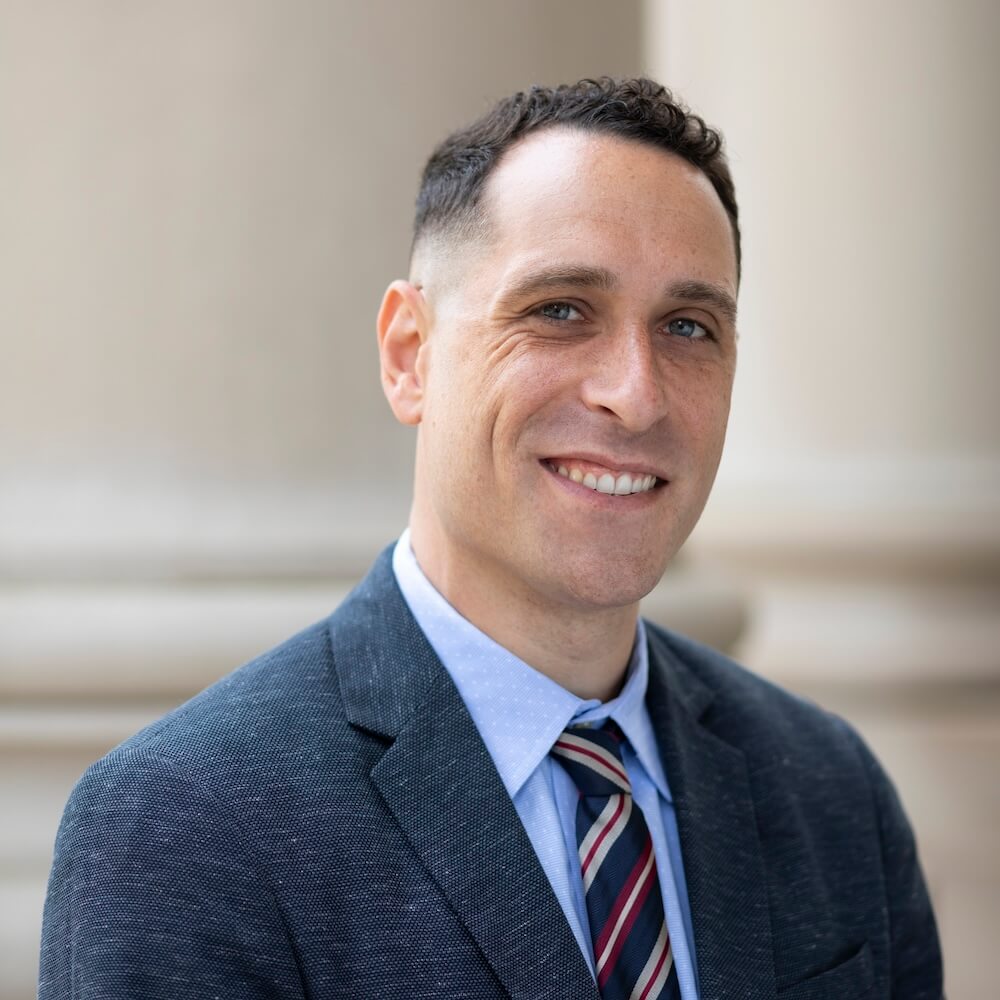
Erik X. Raj, Ph.D., CCC-SLP
Associate Professor;
Speech Language Pathology
Email: eraj@monmouth.edu
Phone: 732-923-4638
Take the Next Step
Apply Now
Ready to apply to Monmouth’s SLP graduate program? Start your application today.

